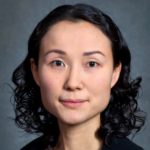 SPEAKER:
HARUKO WAINWRIGHT
DATE/TIME:
MON, 04/13/2020 – 4:00PM TO 5:00PM
LOCATION:
via ZOOM
Spring 2020 Colloquium Series
Abstract:Environmental concerns – mainly associated with nuclear waste and nuclear accidents – have been one of the biggest bottlenecks for nuclear energy. At the same time, the society has been struggling to assess these risks relative to other hazardous waste, other pollution and climate change. In the US, there are more than a hundred sites used for nuclear weapon production, most of which still have significant radiological contamination in soil and groundwater. With more than thirty years of characterization and remediation activities, these sites offer significant insights on environmental mobilities of radionuclides and their impacts on the environment and public health. For example, relative risks/importance among different radionuclides and other heavy metals have been assessed at many sites.
SPEAKER:
HARUKO WAINWRIGHT
DATE/TIME:
MON, 04/13/2020 – 4:00PM TO 5:00PM
LOCATION:
via ZOOM
Spring 2020 Colloquium Series
Abstract:Environmental concerns – mainly associated with nuclear waste and nuclear accidents – have been one of the biggest bottlenecks for nuclear energy. At the same time, the society has been struggling to assess these risks relative to other hazardous waste, other pollution and climate change. In the US, there are more than a hundred sites used for nuclear weapon production, most of which still have significant radiological contamination in soil and groundwater. With more than thirty years of characterization and remediation activities, these sites offer significant insights on environmental mobilities of radionuclides and their impacts on the environment and public health. For example, relative risks/importance among different radionuclides and other heavy metals have been assessed at many sites.
In parallel, environmental remediation has been evolving over the last thirty years. The current focus is to use more sustainable methods such as passive treatments and monitored natural attenuation, after recognizing that clean-up activities have some side effects and risks such as ecological disturbances, intensive energy uses, CO2/waste production and air pollution. We are developing technologies to support such sustainable remediation based on new sensors, machine learning and numerical modeling of radionuclide migration. The particular focus is to develop a new paradigm of long-term monitoring strategies including early warning systems and monitoring network optimization. We have demonstrated these approaches at the Savannah River Site and the region around the Fukushima Dai-ichi Nuclear Power Plant.
About the Speaker: Haruko is a research scientist at Lawrence Berkeley National Laboratory. She earned master in nuclear engineering and statistics, and PhD in nuclear engineering at University of California, Berkeley. Her research focuses on hydrological modeling, spatial statistics, data integration, and uncertainty quantification. She has worked on various research topics in both nuclear engineering and environmental sciences, including nuclear waste, groundwater contamination, Fukushima radiation monitoring, and climate change impacts on ecosystems.